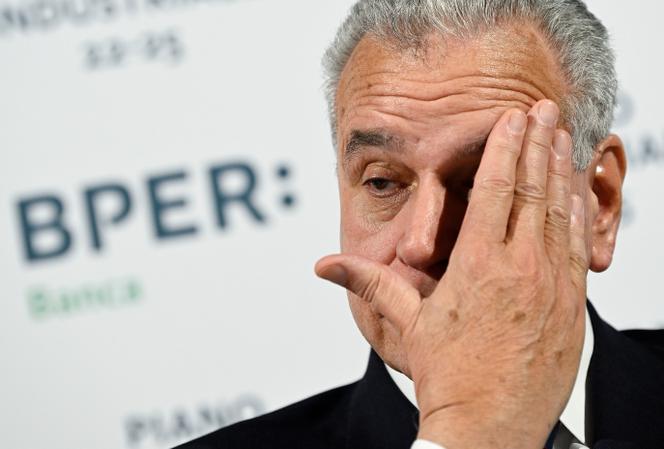


At the height of summer, the announcement came as something of a surprise, and the markets reacted with shock. At the end of a late-night cabinet meeting on Monday August 7, Italy's vice-president Matteo Salvini (Liga, far right) unexpectedly announced a 40% tax on bank windfall profits. This was unexpectedly slipped into a catch-all decree-law dubbed "Assets, economic activities and strategic investments," covering matters ranging from cab licenses to foreign investment.
On Tuesday, the markets responded spectacularly, sending Italian bank shares plummeting on the Milan Stock Exchange. By mid-day, BPER Banca had lost 8.86%, Banco BPM 7.93%, Intesa Sanpaolo 7.51%, UniCredit 6.14%, Mediobanca 2.18% and Banca Monte dei Paschi di Siena (MPS, owned by the Italian state) was down 8.01%.
The extraordinary tax wanted by the government, dominated since October 2022 by Giorgia Meloni's far right party, was presented as "a measure of fairness" by Salvini. It is a response to the continuing rise in interest rates by the European Central Bank (ECB) and the additional costs it is causing households, as the extra profits to banks have not been matched by better returns on customer accounts. The new retroactive tax, which Rome estimates will bring in €3 billion to the state budget, is intended to finance public aid for first mortgages, a tax cut and other tax measures for individuals and companies.
This decision is primarily aimed at households who took out variable-rate loans, and are penalized by the ECB's monetary tightening policy. As a result, many Italian families are finding it difficult to pay their fees, which is taking a heavy toll on their already strained financial situation in a country still hit by commodity inflation. The cost of bank loans, which is particularly the subject of attention from the government, is at the heart of a latent dispute between the ECB and the Italian government. In recent months, Rome has repeatedly criticized the ECB on behalf of households and investors.
At the end of June, responding in an interview with the center-right daily Il Giornale to the ECB's announcement of a further rate hike in the following month, Italy's Vice-President of the Council and Minister of Foreign Affairs Antonio Tajani accused the ECB of blocking entrepreneurial initiatives and hurting Italian growth. Commenting on the forthcoming tax on Tuesday for Milanese newspaper Corriere della Sera, Tajani reaffirmed his position, declaring, "We've been saying for months that the ECB is making a mistake by raising interest rates, and [the windfall tax ] is the inevitable consequence." Asked about the reaction of the banking sector, Tajani qualified the impact of the previous day's announcement, as the measure instituting the new levy, whose effect is supposed to be limited to one year, is likely to be modified during its legislative course.
You have 35.59% of this article left to read. The rest is for subscribers only.
